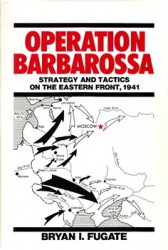Jefferson’s difficulties with Burr may be traced at least in part to the purchase of Louisiana, which, empty and unknown, excited the greed of men like Burr and Wilkinson. But problems infinitely more serious were also related to Louisiana.
Napoleon had jettisoned Louisiana to clear the decks before resuming the battle for control of Europe. This war had the effect of stimulating the American economy, for the warring powers needed American goods and American vessels. Shipbuilding boomed and foreign trade, which had quintupled since 1793, nearly doubled again between 1803 and 1805. By the summer of 1807, however, the situation had changed: A most unusual stalemate had developed in the war.
In October 1805 Britain’s Horatio Nelson demolished the combined Spanish and French fleets in the Battle of Trafalgar, off the coast of Spain. Napoleon, now at the summit of his powers, quickly redressed the balance, smashing army after army thrown against him by Great Britain’s continental allies. By 1807 he was master of Europe, while the British controlled the seas around the Continent. Neither nation could strike directly at the other.
They therefore resorted to commercial warfare, striving to disrupt each other’s economy. Napoleon struck first with his Berlin Decree (November 1806), which made “all commerce and correspondence” with Great Britain illegal. The British retaliated with a series of edicts called Orders in Council, blockading most continental ports and barring from them all foreign vessels unless they first stopped at a British port and paid customs duties. Napoleon then issued his Milan Decree (December 1807), declaring any vessel that submitted to the British rules “to have become English property” and thus subject to seizure.
The blockades and counterblockades seemed designed to stop commerce completely, yet this was not the case. When war first broke out between Britain and France in 1792, the colonial trade of both sides had fallen largely into American hands because the danger of capture drove many belligerent merchant vessels from the seas. This commerce had engaged Americans in some devious practices.

American traders in the exchange at a port in China.
For example, American merchants carried sugar from the French colony of Martinique first to the United States, a legal peacetime voyage under French mercantilism. Then they reshipped it to France as American sugar. Since the United States was a neutral nation and sugar was not contraband of war, the Americans expected the British to let their ships pass with impunity. Continental products likewise reached the French West Indies by way of United States ports, and the American government encouraged the traffic in both directions by refunding customs duties on foreign products reshipped within a year. Between 1803 and 1806 the annual value of foreign products reexported from the United States jumped from $13 million to $60 million! In 1806 the United States exported 47 million pounds of coffee—none, of course, of local origin.
This underhanded commerce irritated the British. Thus just when Britain and France were cracking down on direct trade by neutrals, Britain determined to halt the American reexport trade, thereby gravely threatening American prosperity.




 World History
World History









